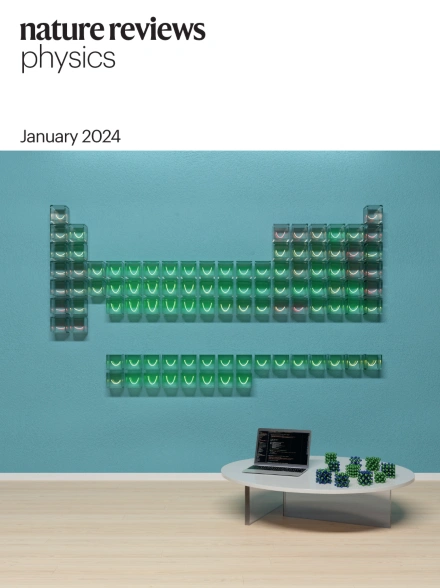Shifting sands of hardware and software in exascale quantum mechanical simulations
IF 39.5
1区 物理与天体物理
Q1 PHYSICS, APPLIED
引用次数: 0
Abstract
The era of exascale computing presents both exciting opportunities and unique challenges for quantum mechanical simulations. Although the transition from petaflops to exascale computing has been marked by a steady increase in computational power, it is accompanied by a shift towards heterogeneous architectures, with graphical processing units (GPUs) in particular gaining a dominant role. The exascale era therefore demands a fundamental shift in software development strategies. This Perspective examines the changing landscape of hardware and software for exascale computing, highlighting the limitations of traditional algorithms and software implementations in light of the increasing use of heterogeneous architectures in high-end systems. We discuss the challenges of adapting quantum chemistry software to these new architectures, including the fragmentation of the software stack, the need for more efficient algorithms (including reduced precision versions) tailored for GPUs, and the importance of developing standardized libraries and programming models. The exascale era, driven by GPU-dominated architectures, demands a shift in quantum simulation software. This Perspective examines algorithm adaptation, software fragmentation, and the need for efficient GPU-optimized methods, standardized libraries and scalable programming models for high-performance quantum simulations.百亿亿次量子力学模拟中硬件和软件的流沙
百亿亿次计算时代为量子力学模拟提供了令人兴奋的机会和独特的挑战。虽然从千万亿次到百亿亿次计算的转变标志着计算能力的稳步增长,但它伴随着向异构架构的转变,特别是图形处理单元(gpu)获得了主导地位。因此,百亿亿次时代要求软件开发策略发生根本性的转变。本展望研究了百亿亿次计算硬件和软件的变化,强调了传统算法和软件实现在高端系统中越来越多地使用异构架构的局限性。我们讨论了使量子化学软件适应这些新架构的挑战,包括软件堆栈的碎片化,为gpu量身定制的更高效算法(包括降低精度的版本)的需求,以及开发标准化库和编程模型的重要性。由gpu主导的架构推动的百亿亿次时代要求量子模拟软件发生转变。本展望将探讨算法适应性、软件碎片化、高效gpu优化方法、标准化库和高性能量子模拟可扩展编程模型的需求。
本文章由计算机程序翻译,如有差异,请以英文原文为准。
求助全文
约1分钟内获得全文
求助全文
来源期刊

Nature Reviews Physics
Multiple-
CiteScore
47.80
自引率
0.50%
发文量
122
期刊介绍:
Nature Reviews Physics is an online-only reviews journal, part of the Nature Reviews portfolio of journals. It publishes high-quality technical reference, review, and commentary articles in all areas of fundamental and applied physics. The journal offers a range of content types, including Reviews, Perspectives, Roadmaps, Technical Reviews, Expert Recommendations, Comments, Editorials, Research Highlights, Features, and News & Views, which cover significant advances in the field and topical issues. Nature Reviews Physics is published monthly from January 2019 and does not have external, academic editors. Instead, all editorial decisions are made by a dedicated team of full-time professional editors.
 求助内容:
求助内容: 应助结果提醒方式:
应助结果提醒方式:


